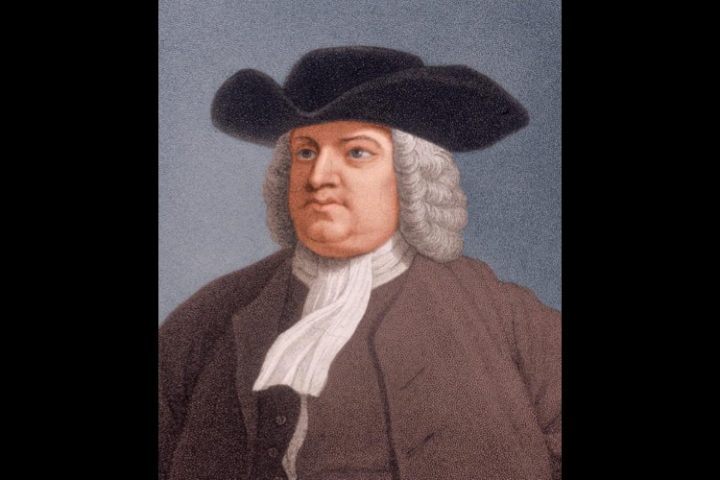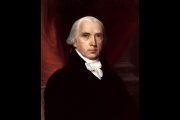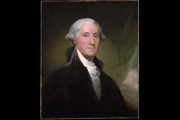
William Penn, a towering figure in 17th-century England and a pivotal influence in the establishment of the Pennsylvania Colony, is renowned not only for his role as a visionary statesman but also as an influential philosopher, religious thinker, and writer. His life and accomplishments left an indelible mark on the history of the United States and the development of principles that continue to shape modern popular governments.
Born on October 14, 1644, in London, William Penn was the son of Admiral Sir William Penn and Margaret Jasper. Raised in an affluent Anglican family, he was exposed to the political and social elite of his time. However, the trajectory of his life took an unexpected turn when he converted to Quakerism at the age of 22. This conversion was a turning point in his life, setting him on a path of religious non-conformity and activism.
Penn’s embrace of Quakerism brought him into conflict with the religious and political authorities of England. Quakers were considered radical at the time for their pacifist beliefs, emphasis on spiritual equality, and their commitment to religious freedom. Penn, inspired by these principles, emerged as a champion of individual conscience and the rights of religious minorities.
One of Penn’s most significant achievements was his role in obtaining the Pennsylvania land grant from King Charles II in 1681. This charter was granted in repayment of a debt owed to Penn’s father, but it also presented a unique opportunity. Penn envisioned the colony of Pennsylvania as a haven for Quakers and a model of religious tolerance and self-governance. The name “Pennsylvania” — meaning “Penn’s Wooded Land” — was chosen to honor his father and his vision.
Penn’s “Frame of Government for Pennsylvania,” established in May 1682, was a groundbreaking document that set the stage for popular self-governance in the New World. It emphasized principles such as freedom of religion, trial by jury, and representation in government — ideas that would later influence the drafting of the U.S. Constitution.
Pennsbury Manor website proudly proclaims Penn’s steadfast commitment to religious liberty in its biography of William Penn:
In Pennsylvania, religious tolerance was the law. Penn welcomed settlers from all faiths to Pennsylvania. Each of the other American colonies had established an official church, but Penn did not. He sought out religious groups suffering in Europe, and invited them to his colony.
In an as-yet unsettled question about the provenance of the principles enshrined in Penn’s “Frame of Government for Pennsylvania,” another member of the 17th century pantheon of English heroes of the cause of liberty may have had a hand in drafting that document: Algernon Sidney. Many scholars believe Sidney was a co-author with Penn in drafting the “Frame of Government” for Pennsylvania. It is a subject of historical interest and debate as to the contributions, if any, Sidney made to that seminal document. While there is no concrete evidence that Sidney directly assisted Penn in crafting the specific provisions of the “Frame of Government,” there are historical connections and ideological similarities that suggest a potential influence.
Algernon Sidney, a notable political philosopher and writer, was known for his republican principles and his treatise, Discourses Concerning Government. In this work, Sidney articulated ideas of limited government, the consent of the governed, and the right to resist tyrannical rule, which had a profound impact on later political thought and influenced the American revolutionary era.
While it is uncertain whether Sidney and Penn had direct interactions during the drafting of Pennsylvania’s government structure, there is a historical context that links their ideas. Both Sidney and Penn were proponents of limited government power, the consent of the governed, and the protection of individual rights. They were also contemporaries who lived during a time of political turmoil in England.
Penn and Sidney’s collaboration on other endeavors is no matter of scholarly conjecture, however. William Penn played the role of campaign manager in Algernon Sidney’s bid for a seat in the English Parliament in 1678 when he ran as a candidate for Guilford in Surrey. A year later, in 1679, he attempted to secure a parliamentary seat for Bramber in Sussex. However, despite his determined efforts, he faced defeat on both occasions.
In a twist of fate, on August 10, 1679, Sidney successfully secured a parliamentary seat representing Amersham in Buckingham. Yet, as events unfolded, when the Parliament convened in October 1680, his electoral victory was met with controversy, resulting in a declaration of its invalidity.
Beyond retail politics, however, William Penn was not only a philosopher but also a practical statesman. He actively participated in the administration of Pennsylvania and worked tirelessly to create a society based on Quaker principles. He established peaceful relations with the Native American tribes in the region, demonstrating a commitment to fairness and respect that was uncommon in the colonial era.
Penn’s contributions to the cause of religious freedom extended beyond Pennsylvania. He played a crucial role in securing the passage of the 1689 Toleration Act in England, which granted religious liberties to non-conformists, such as Quakers and Baptists, marking an important milestone in the history of religious freedom in England.
In addition to his political and religious endeavors, Penn was also a prolific writer. His many works, including No Cross, No Crown and Truth Exalted: To Princes, Priests, and People, explored themes of pacifism, religious liberty, and the Quaker way of life. His writings served to articulate and spread Quaker beliefs, making him a notable intellectual figure of his time.
Despite his numerous accomplishments, Penn faced challenges and adversity, including financial difficulties and legal disputes. His commitment to his principles, however, never wavered. He spent time in prison for his Quaker activities and continually advocated for religious tolerance and civil liberties.
In conclusion, William Penn’s life is a testament to his unwavering commitment to the principles of religious freedom, republicanism, and individual rights. His enduring legacy is seen not only in the founding of Pennsylvania but also in the broader influence of his ideas on the development of democratic governance and the protection of religious liberties in the United States and beyond. William Penn’s life and work continue to inspire and guide those who value justice, equality, and the pursuit of a more tolerant and inclusive society.



